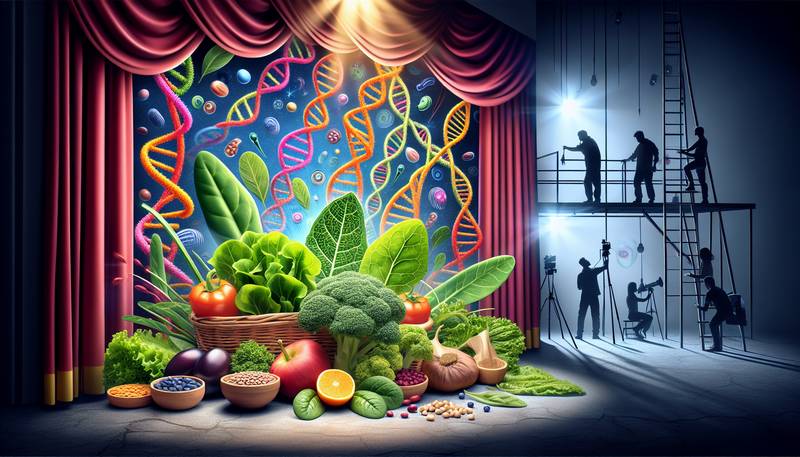Role of Folate in DNA Synthesis: Importance of Leafy Greens and Legumes

Folate: The Unsung Hero of Cell DivisionEver wonder why some people can remember an entire movie plot while others struggle to recall where they left their keys? It might just boil down to folate. This lesser-known vitamin, often overshadowed by its flashy relatives, plays a pivotal role in DNA synthesis. It’s like the backstage crew of a theater production, working tirelessly to ensure everything runs smoothly—while the actors get all the applause. Without folate, our cells would be like a sitcom without a punchline: totally confusing and likely a little sad.Folate, also known as vitamin B9, is crucial for creating and repairing DNA. It's particularly important for rapidly dividing cells, such as those in our bone marrow and digestive tract. Think of it as the essential ingredient in a DNA smoothie: you blend it all up and hope for some great genetic outcomes. But let’s not get carried away with the smoothie metaphors—it’s not like you can toss some kale and legumes into a blender and expect to fix a broken gene. Or can you?Why Leafy Greens Are Your New Best FriendsIf you want to put your best foot forward in the world of DNA synthesis, it’s time to meet your leafy green allies. Leafy greens are not just the garnish on your plate that your dinner guests pick off and place to the side. No, sir! Spinach, kale, and romaine are packed with folate, making them essential for those cellular power moves. - Spinach: Popeye's favorite! Packed with folate and also iron—it'll help you feel strong enough to lift a buoy without even flexing.- Kale: The hipster of the vegetable world. Loaded with vitamins, it’s usually found in organic grocery stores, wearing artisanal glasses.- Romaine: The classic Caesar’s sidekick—more than just a salad essential, it’s a folate powerhouse.Not only do leafy greens provide folate, but they also add vibrant colors to your diet. If eating your greens feels like a chore, just imagine you're trying to make your plate look like a work of art. Who knew getting enough vitamins could feel like channeling your inner Picasso?Legumes: The Protein-packed Folate BombsNow, let’s give a round of applause for legumes—the unsung heroes of healthy eating who often find their way into the shadows of meat-based dishes. Beans, lentils, and peas are packed with protein and, you guessed it, folate! They're like the best friends who never steal the spotlight but always show up for you when it counts. - Black beans: Like tiny, edible ninjas, these little guys pack a punch with their folate content while sneaking onto your burrito without you even realizing it.- Chickpeas: Perfect for hummus and salads, they’re versatile and a solid choice if you want to flex your culinary muscles.- Lentils: These tiny legumes are like the speedsters of the plant kingdom—quick to cook and quick to provide a hefty dose of folate. Incorporating legumes into your diet is a smart move, even if it means learning how to properly pronounce “quinoa” first.The Science of Folate and Its ImportanceWhile culinary creativity is essential, understanding the science behind folate is also crucial. Folate is involved in the synthesis of nucleic acids, the building blocks of DNA and RNA. It aids in the methylation process, which is vital for gene regulation. This means that not only does folate help build the structure of DNA, but it also plays a role in determining how our genes express themselves.Deficiencies in folate can lead to serious issues, including anemia and increased risk of birth defects during pregnancy. So, if you’re hoping to avoid any genetic hiccups, embracing those leafy greens and legumes could be your golden ticket. Leaf Your Worries Behind!Folate may not be the star of the nutritional show, but it’s undeniably a vital player in the game of life. By indulging in a colorful variety of leafy greens and legumes, you're not just supporting your health; you’re becoming a champion of DNA synthesis. So, stock up on your salads and bean-based dishes, and you'll be on the fast track to a healthy future. Remember, eating well doesn’t just help your waistline; it helps your genes stay in line. And who wouldn’t want that?
|
|







